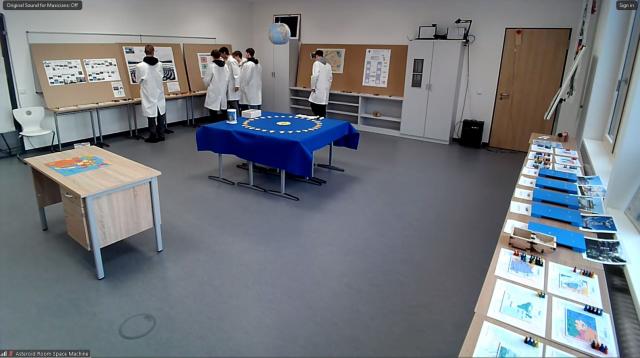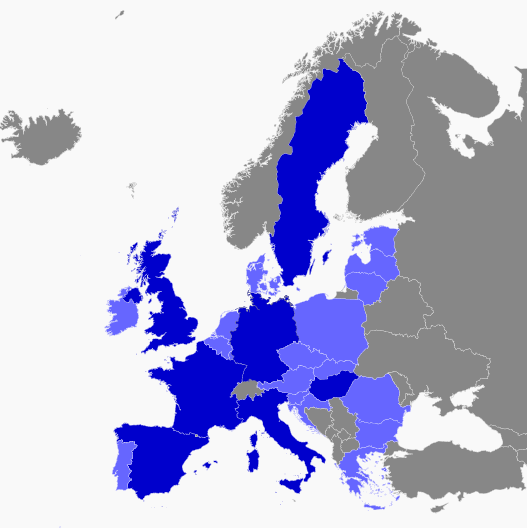Project week at Sophienschule highschool in Hannover with the „Asteroid Alarm!“ escape game
How do you get a law passed in the EU? Where does parliament meet again? And how do we get the Smurfs out of the box? – These were the kinds of questions faced by 150 students at Sophienschule in Hanover last week (Jan. 2024). They played the escape game "Asteroid Alarm" organised by the Hanover Adult Education Centre, which had come to the school with bag and baggage for a week. Asteroid Alarm is about saving the world and understanding how the European Union works at the same time.
Asteroid Alarm is a game for teams of eight to twelve people that works according to the principle of the now well-established "escape rooms". Within an hour, the participants have to solve tasks that are hidden in suitably designed props in the room and follow a story. The story of Asteroid Alarm is about the threat posed to planet Earth by a large asteroid. The players find themselves in the role of scientists who have developed a protective shield against asteroids; however, they need money to build the shield and they hope to get this money from the European Union as quickly as possible. To do this, they need to understand how decisions are made in the European Union, i.e. how the EU draws up and adopts laws, with the cooperation of the most important institutions: Commission, Parliament and Council.
The Ada and Theodor Lessing Adult Education Centre developed the game two years ago as part of an international cooperation project funded by the EU through the Erasmus+ programme. Since then, the game has not only been used in numerous rounds at the adult education centre in Hanover (and elsewhere in Lower Saxony) but also in schools, especially in the tenth grade at grammar schools, where the European Union is part of the curriculum. The game offers an intensive, fun, experience- and teamwork-orientated approach to the subject matter of the EU, which is often perceived as dry. The pteams discover the legislative process in the EU step by step in the room designed with EU and space themes: Who drafts the bill? Who has to approve it? Who elects the MEPs? They have exactly one hour to do this. In addition to the ticking clock, a large monitor in the room shows a view of the stars and the menacing approaching asteroid. At the end of the game – typically after exactly one hour – the funding for the asteroid protection shield, symbolised by chocolate euros in a cash box, is awarded. The VHS game leader team provides tips adapted to the group dynamics to ensure that the teams just about reach the goal and have a sense of achievement.
Afterwards, pupils, teachers and VHS educators sit together in a circle, discuss what they have experienced, analyse their teamwork and deepen their knowledge of the institutional structure and legislative procedures of the EU in the discussion.
It was the second time that the VHS Hannover had visited the Sophienschule for a week with the game. Politics teacher Harry Lubs, who coordinated the campaign at Sophienschule, is delighted: “The game offers a completely different approach to the EU. When do you ever see pupils cheering with enthusiasm in politics lessons? We usually only see that in sport.”
In this year 2024, the game has a special significance for the tenth graders involved: everyone who is 16 years old on 9 June has the right to vote in the European elections - the elections to the European Parliament. The voting age has been lowered to 16 for the first time.
(Christian Geiselmann, VHS Hannover)
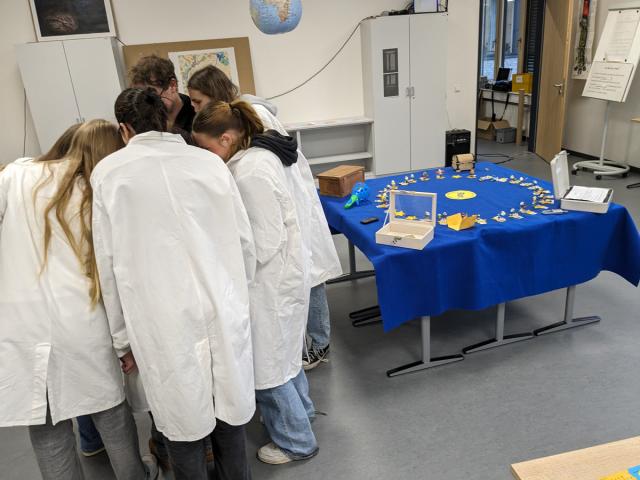
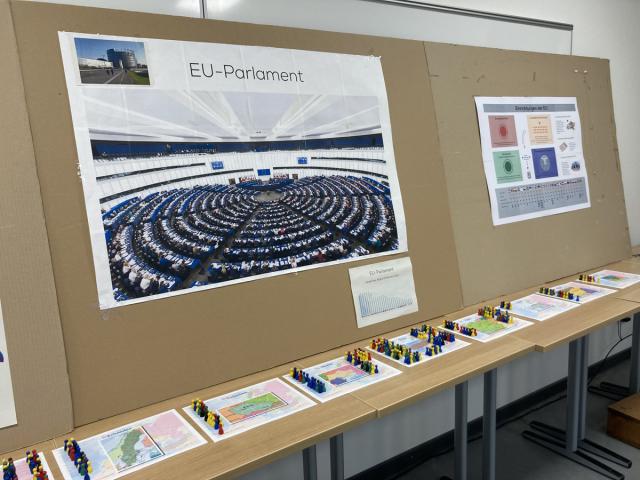
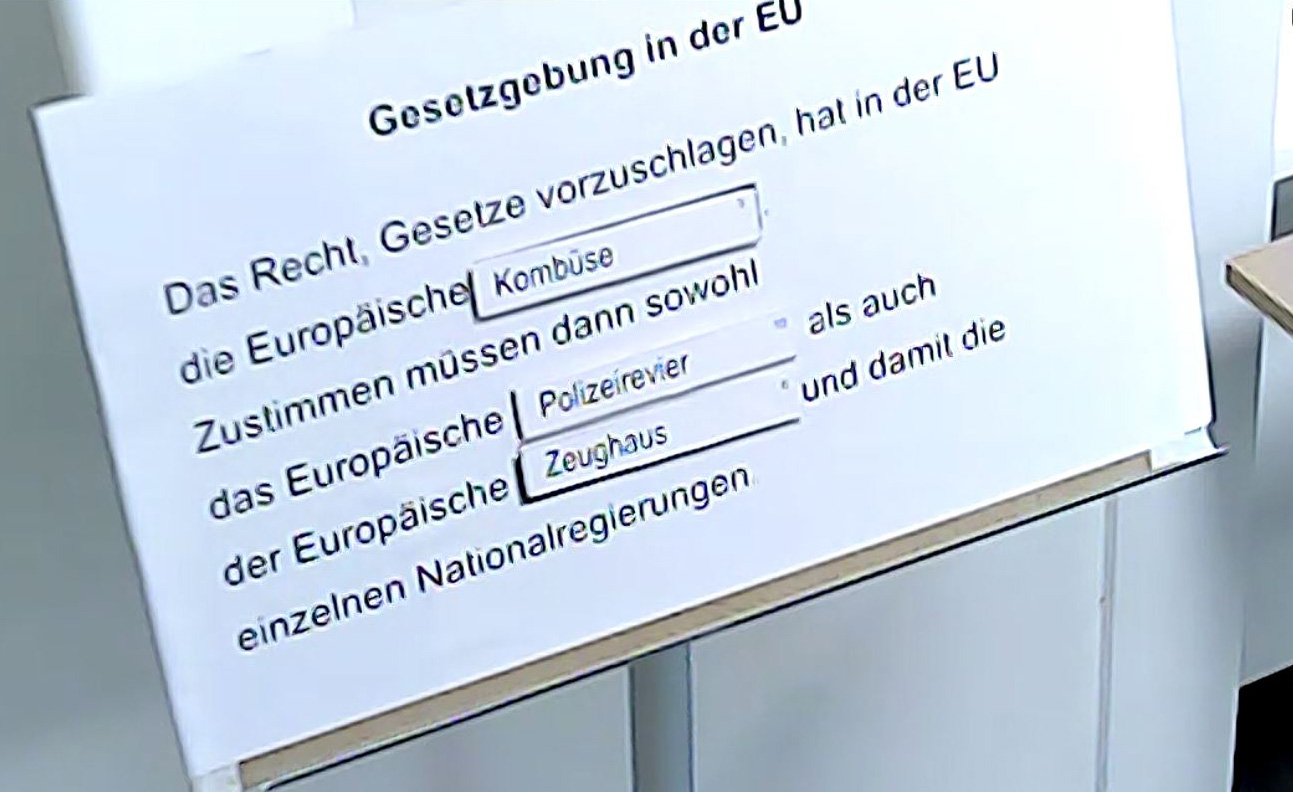 In this word gap board, players have to fit in the right words to describe the EU legislation procedure. Information on this topic can be found elsewhere in the room. However, students usually first try the completely nonsensical words lying next to the board.
In this word gap board, players have to fit in the right words to describe the EU legislation procedure. Information on this topic can be found elsewhere in the room. However, students usually first try the completely nonsensical words lying next to the board.



